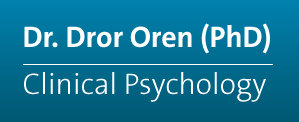Psychological treatment of children
Child Psychotherapy or Psychological treatment of children is a healing process that occurs in accordance with the child and his or her needs, by means of the language used by the child. Child treatment is conducted using play, conversation, expression with drawing/painting and various materials, water, or any other means of communication and expression, through which the child sees fit to bring one's self. In its principles, psychological treatment of children is similar to, and different from the treatment of adults. The similarity to the treatment of adults is in the principle of a healing process that is related to the development of the capacity for emotional expression, combining and connecting emotion and reason, finding patterns and choosing whether to continue or change them. Nevertheless, there are some significant differences. From a child's point of view, it is sometimes difficult to define exactly what is disturbing him or her. Secondly, an adult arrives with their memories and what we psychologists define as one's "internalized figures". An adult's parents have more or less influence, but are not rearing him or her in practice. A child has substantial, influential, present parents, whom are a fundamental part of the child's rearing; therefore, any process of change in the child will involve them to some extent or the other. Therefore, if you have brought a child for therapy, expect to partake in it, according to what the child needs for his or her development. Thirdly, a child is undergoing a developmental process; therefore, the intervention should be adapted to the child's current developmental phase. Beyond that, sometimes the changes in the child will be rapid because of the natural development processes.
The therapeutic process- child treatment is usually a process that begins with one or more sessions with the parents. In this session, the parents can talk about what is bothering/annoying/disturbing them, or the child, or the educational system (in case the referral was made from there.)
Afterwards, I conduct two to four sessions for acquaintance and assessment whether the child requires emotional treatment and what kind of treatment. I view the child from a familial perspective. There are children who come with a distress that is defined or seems to exist within themselves: self-image, identity, conception of life. Nevertheless, sometimes the relationship, the understanding, the complementary process with the parents, can be very helpful. This holds true for adolescents as well, although in their case, a treatment where the parents play a more minor role, will obviously be more common. From the standpoint of my professional perspective, when parents turn to treatment with a child or adolescent, after the acquaintance I may suggest the following types of intervention:
The child does not require treatment, but a different intervention
The child requires a focused/open psychological treatment
The parents need training
A combination between treatment for the child and training for the parents
Treatment of the parent-child relationship (versions of dyadic therapy or treatment with the parent's presence)
Parenthood Therapy (a model where the emphasis is on the parents' feelings, difficulties with regard to their child)
There is a mistaken assumption among some people, that treatment of a child by a psychologist is based on conversation. This is a mistake. Psychological treatment of a child is not necessarily verbal treatment. Psychological treatment of a child is an emotional treatment based on working with: conversation, play (the language of childhood), creation, and more.
The child arrives at a room where it is possible to talk, play, express oneself verbally, and express one's self in various ways. Sometimes, children come with a focused distress "I don't have friends", "I get insulted easily", "I don't fall sleep 'cause I'm scared" and so forth. Children sometimes come with states of closedness, vulnerability, avoidance and they or their environment do not indicate any specific distress.
The therapeutic contract- i.e, the direct and conscious consent; it is different when there is a clear focus or when such a focus does not exist. In treating children, there may be a difference between what the parents want (who sometimes wish their child will be more socially active, happier, more focused at school) and what the child wants to change (for instance, to be understood more, to be happier, or suffer less at school).
See more on treating children at "Emotional Treatment of Children" in the video report footage. For more on types of treatments with parents, see: "Psychological Treatment of Parenthood"


